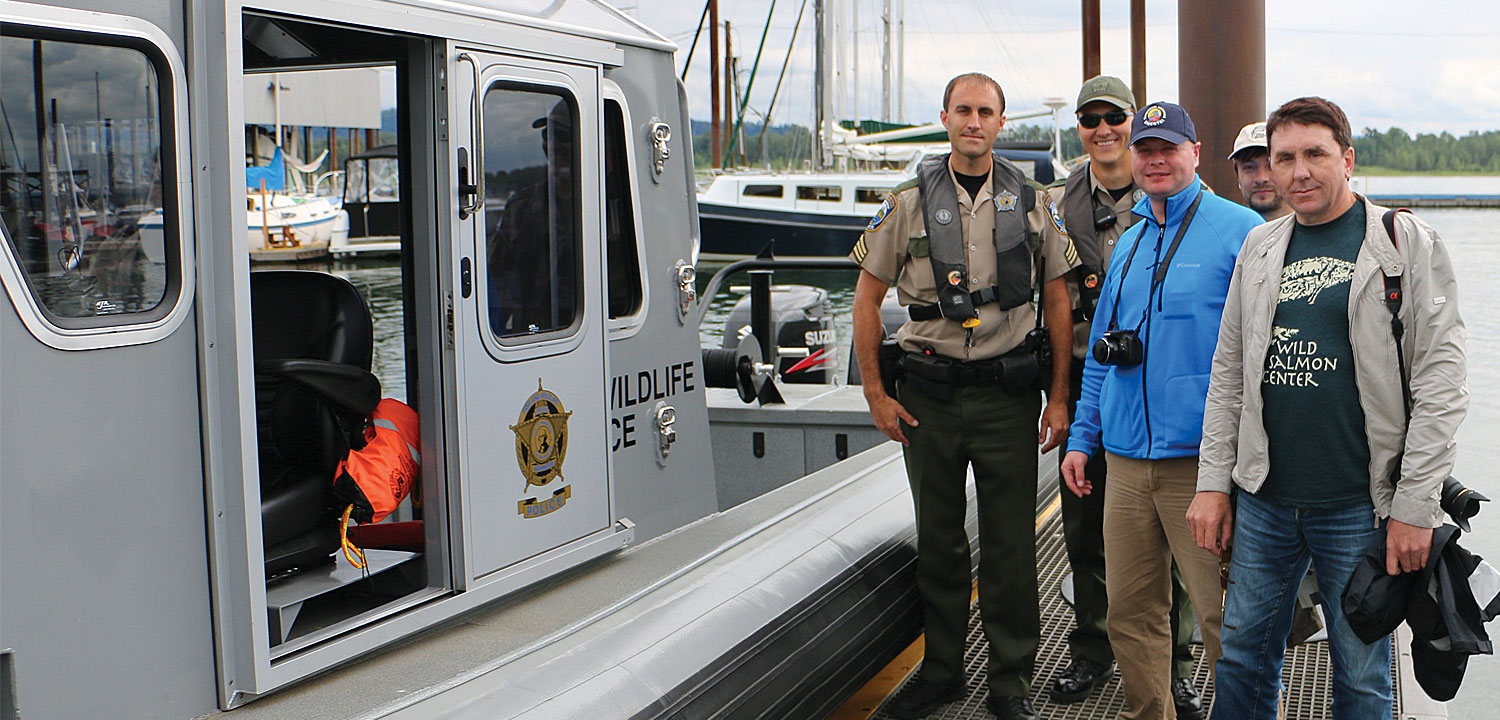Exchange gives Russians first-hand experience of the risks and rewards of US fishery management practices.
With the support of Trust for Mutual Understanding, Wild Salmon Center has hosted numerous exchanges over the years focusing on specific conservation topics such as protected area management, the role of sportfishing in conservation, wild salmon resource management, and conservation education.
This year WSC hosted three guests from the Kamchatka Peninsula, Sakhalin Island, and the Khabarovsk Region of the Russian Far East mainland as part of a Russian Conservation Leader Immersion Exchange Series. They were Sergei Serebriakov (Sakhalin Regional NGO “Sakhalin Fishermen Club Sakhalin-Kyrily”), Aleksei Kulikov (Khabarovsk Wildlife Foundation), and Andrey Vakhrin (Head of Municipal Tourist Department and Director of the Kamchatka Regional Festival “Saving Salmon Together!”).
Our goal was to provide upcoming leaders with a solid base for understanding salmon resource management issues, including the causes of wild salmon decline across North America and the work we do with a multitude of partners to address the environmental, economic, and social impacts of this decline. In July the team moved across Oregon, Washington and Alaska visiting national and state parks and forests, local watershed councils, coastal centers, U.S. and Indigenous fisheries, hatcheries, and dam sites.
“It was very rewarding to see how people and the states relate to their heritage and natural wealth. And to see how much effort is being made to correct the mistakes of the past,” noted Andrey Vakhrin.
Guests saw first-hand the impacts dams, hatcheries, and mismanaged forestry practices can have on wild salmon stocks. The Pacific Northwest is much more developed than the Russian Far East and many Russians have never seen the long-tern effects these practices can have on their forests, rivers, and salmon populations.
“I was especially struck by the scope of the restoration work (in the) Tillamook,” stated Sergei Serebriakov. “It is hard to imagine that something like that can ever be carried out on Sakhalin, although the need is already there with rivers affected by human activities and loss of salmon spawning grounds. Using the experience gained by you, I have hope they could be restored.”
See more photos on Facebook.
